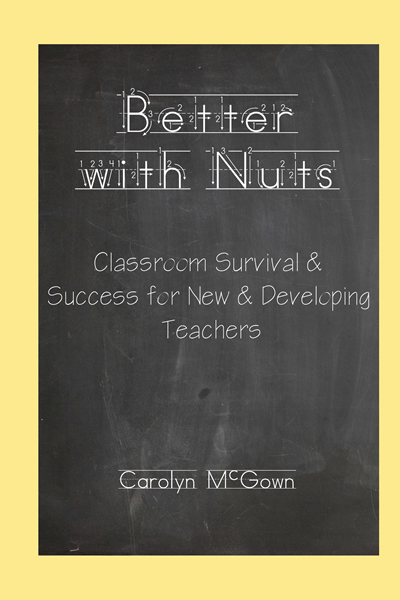 "Wandering Tattler" (Migratory bird: Alaska/Hawaii)
"Wandering Tattler" (Migratory bird: Alaska/Hawaii)I’m Telling!
Tattle (verb): To reveal the plans or activities of another person. Usually refers to a report on non-important events.
Synonyms (nouns): gossip, tattler, snitch, informer, informant, tattletale, rat, talebearer, squealer, stool pigeon, telltale, sneak, grass
 "Wandering Tattler" (Migratory bird: Alaska/Hawaii)
"Wandering Tattler" (Migratory bird: Alaska/Hawaii)
Aughhhh!!!
It’s one of those behaviors that makes us consider calling in sick tomorrow... taking a “mental health day”. Formerly known, back-in-the-day, as “tittle-tattle”, tattling is reported on surveys of teachers as being one of our major irritants, but on the other hand, we want kids to be our second set of eyes and ears in noticing behaviors that are in need our intervention. I already posted two great readings on tattling on the BehaviorAdvisor site: A reprint of an article by one of my favorite authors, Mary Beth Hewitt, who “keeps it real(life”) when talking about how to address inappropriate behavior; and a short report by one of my former grad students on using “Bibliotherapy” with a class to reduce their tattling behavior. Links to those readings can be found at the end of this post.
What brought the issue back to my mind (besides raising a 3 year old and a 6 year old) was reading through the book I mentioned in my previous blog post on lying: “Nurture Shock: New Thinking About Children”. (Po Bronson & Ashley Merryman, 2009, New York:12). These award-winning authors and parents who wanted to know everything about parenting, report some of the latest research on childraising, including tattling.
Here are some of the interesting findings:
Children start to tattle/report before they can talk! At about 14 months of age, little urchins will cry, point, or look at the sibling who took the cookie, stuffie, or other valued item. Because we, as parents, intervene and attempt to teach lessons, appealing to adults becomes habit.
However, around 4 years of age, they start hearing the grown-ups (or “grumps” as they were called in an old Star Trek TV episode) tell them “Don’t tattle.” The adults want them to resolve the issues themselves, and stop the attempts, often outright lies, to exert power over others by getting them in trouble. However, young children lack the social skills to handle the problematic situations unless adults have taught them how to do so (Remember: Telling is not teaching. Telling is one part of teaching; backed up by explanation, instruction, and practice).
The lying part takes us back to the previous blog post, but with regards to tittle-tattle, researchers who observed kids at play found that 9 out of 10 reports on the actions of others are truthful (Even though the Encarta World Dictionary lists the antonym of "Tattle" as being "Fact"). And while the tattling may seem to be incessant to parents, the observers found that for every report made to a parent, there were 14 other times when the child was wronged by another, but did not make a report to the parent. Finally, fed up with the actions of the other, the offended child seeks the assistance of the parent. The parental response? ...Parents are 10 times more likely to chastise a reporter than a kid who told a lie to them!
It doesn’t take long for kids to discover the power of “Don’t tell” …that one can prevent another from reporting on one’s aberrant actions by giving the potential reporter the threat of being known as a “tattle-tale” (or “tattle-tell). By 3rd or 4th grade, it’s the worst label that a kid can wear. It brings peer rejection, and the adult mantra of “Solve the problem.”
"Cindy, you know by tattling on your friends, you're really just tattling on yourself.
By tattling on your friends, you're just telling them that you're a tattletale.
Now, is that the tale you want to tell?"
From: A Brady Bunch Movie
As kids move up in the grades, they witness schoolhouse crimes that have expanded exponentially: Vandalism, bullying, cheating, etc. In the neighborhood, they see shoplifting, inappropriate words and touch, property damage, theft, experimentation with smoking and drugs, and so forth. These are issues that need to be addressed, ...but now tattling is viewed as being the domain of “little kids”, something with which an aspiring “mature” (pre)teen would never want to be associated. How sad when they remain silent while an attack on another is planned, or a friend threatens to commit suicide.
Kids keep their mouths shut …something taught to them early by parents and reinforced by the now dominant peer-group culture. Unless parents and teachers have developed strong, positive relationships with youngsters, and taught the difference between valid and important reports versus “snitching”, no reports of any sort will be heard. Kids who are anxious and concerned about valid issues avoid the support of those who are most qualified to help.
 "Snitches get stitches." (Old saying believed to have originated in prisons.)
"Snitches get stitches." (Old saying believed to have originated in prisons.)
"Tattletales get nasty e-mails." (Future saying believed to have originated in this blog.)
So what should we do?
Rather than repeat it here, let me suggest that you take a look at the great direction provided in the writings referenced below …Ones found right here on BehaviorAdvisor.com
1. Mary Beth Hewitt's page on Tattling:www.behavioradvisor.com/Tattling.html
2. Amy Gerard's report on her use of books to address classroom tattling: www.behavioradvisor.com/TattletaleBibioExample.html
So, I guess the question is: Did I just tattle on tattling?
Great book! Fascinating content and fun reading. (Click on image to order)
--------------------------------------------------------------------------------------------------------------------------------------------------------------------------------------------------
Self-Help Books for Kids About Tattling
(Click on the images to order or find out more)
--------------------------------------------------------------------------------------------------------------------------------------------------------------------------------------------
P.S. We have a new response on the blog… about RtI (Response to Intervention) and oppositional kids. C’mon… Chime in” with your thoughts on tattling, lying, non-compliant behavior, and RtI
P.P.S. What’s next on the BehaviorAdvisor blog? I’m thinking that it’ll describe some of my questions and concerns about the upcoming DSM-5 manual... The DSM text is used by mental health professionals (and health insurance companies). It contains the criteria for labeling kids & adults as having various mental health disorders.
P.P.P.S. Carolyn McGown and I are hooking up the final wires to offer you her top-notch, everything-you-need-to-know-about-teaching-that-they-didn't-teach-you-in-college book.(see information on it inside the "Shop is open" button on the BehaviorAdvisor home page) More on the countdown to the initial offering soon. As always, "B-List" folks will find out first.

 Remember to visit the BehaviorAdvisor store for other materials to further improve your parenting and teaching skills.
Remember to visit the BehaviorAdvisor store for other materials to further improve your parenting and teaching skills.